
3 Ways Good Science Lab Sheets Teach Life Skills
It was easy to let the concepts of the scientific method slide when the kids were younger. Getting through an experiment without flooding the house or putting a hole in a wall was always the sign of a successful experiment, in my book. Truth be told, I barely used science lab sheets
But honestly, I wasn’t convinced I was hitting the mark with teaching critical thinking skills that come through using the scientific method style lab sheets for science.
I ran across an excellent printable by the Museum of Science* that really helped me put the missing pieces together to ensure that my young scientists are succeeding at their developmental level with critical thinking skills.
Grab Your FREE Lab Sheet At The End Of The Post.
Keep Reading for Science & Life Skill Success Tips!
Now that there are middle schoolers and high schoolers in the house, I’m even more concerned about flooding & holes in the walls AND making sure they understand:
- all the parts of the scientific method,
- why the scientific method is important,
- how to use a lab sheet based on the scientific method, and
- how to use the scientific method to share their experiment or project with others.
Science Success!
In a nutshell, there are seven milestones for each age group with an age-appropriate expression of these skills. The milestones are:
- Problem Solve In Context
- Recognize There Are Many Ways To Solve The Same Problem
- Learn How To Work In Teams
- Think Critically About Their Decisions
- Improve Or Change Their Minds Based on Evidence
- Learn From Failure
- Develop Technological Literacy
With a desire to keep it all as simple as possible, I set out to create a useful scientific method lab sheet that produced more than blank stares from my kids and community learning classmates.

The launch of three famous scientist unit studies, makes a lab sheet based on the scientific method a must-have.
Whether you are studying Archimedes, Galileo, Newton, or any of the other scientists or fields of science, you will want the FREE lab sheet based on the scientific method below.
3 Ways Good Science Lab Sheets Teach Life Skills.
So when you set up the next science session with your kids or learning community, step back and see if your lab sheet is achieving these important milestones in education mentioned above.
Keep in mind that there are many ways to teach science experiments, but there are three key features (in my opinion) that stand out as important in helping teach life skills.
Promote the development of scientific thinking.
Science is the study of facts, but it’s also learning about and discovering the world around us through hands-on projects and experiments. Life skills are multifaceted, so it makes sense that we learn them in a variety of environments.
Promote discovery in the learning process.
Memorizing facts is important for science, but so is asking questions. The questions come when experiments are conducted to help students think and understand the world around them. Being able to ask (and answer) “Why?” Or “What happens if?” This is where understanding is created.

When we go about teaching our young scientists how to use the scientific method, we are teaching the basics of critical thinking, which is such an important life skill. So, slowing it down and understanding the order and process of it all by talking through the various sections of a lab sheet becomes important.
The FREE Scientific Method Lab Sheet includes a glossary to explain complicated terms.
Promote Flexible Thinking.
Another important aspect is helping kids understand what to do when the results are unexpected. Encourage your kids to ask questions like, “What do these results tell us?” and even “Should I have done this experiment differently?”
These types of questions help move students toward understanding the conclusion and results of the experiment and the information they collected on the lab sheet. It also teaches to evaluate a situation and look for ways of improvement.
Yep, another life skill – introspection & self-evaluation.
The most valuable life skill the Scientific Method teaches
I think one of the most important aspects of using the scientific method has nothing to do with science but has everything to do with learning perseverance, a strong work ethic, and a spirit of determination.
When the science experiment results do not affirm the hypothesis … just keep trying! Ask questions, redo the experiment, ask for help, and consider other influencing factors.
So, using a lab sheet based on the scientific method ultimately teaches these life skills
- Organization – both in thinking and on paper
- Teamwork – Working as a group, team, or family builds excellent collaboration skills
- Understanding cause & effect – or the consequence of a particular action
Here’s what those milestones of critical thinking look like when you apply them to learning life skills.
- Problem Solve In Context – Learning to work within the given guidelines.
- Recognize There Are Many Ways To Solve The Same Problem – Different people/cultures approach problems differently
- Learn How To Work In Teams – Working well together is always a positive life skill
- Think Critically About Their Decisions – Considering the consequences of a specific action before taking the action is the path to wisdom.
- Improve or Change Their Minds Based on Evidence – The ability to consider other people’s perspectives on a given topic promotes flexible thinking and creates understanding, which ultimately broadens your worldview.
- Learn From Failure – We won’t always get it right, so learning how to dust yourself off and try again teaches perseverance, loyalty, and a strong work ethic
- Develop Technological Literacy – Understanding how to succeed in an increasingly technological world – it’s the life skill of the next generation.
All the milestone skills listed above are important in family life, learning communities, sports, travel, careers, and so much more!.
Study Great Scientists.
Conduct Great Science Experiments.
Teach Life Skills.
Archimedes was always asking “Why?”
Galileo was the grandmaster of asking “How?” things happened. He’s most famous for testing and retesting with very consistent methods, as well as meticulously observing and gathering data (drawings mostly).
Isaac Newton took all the ideas, questions, and data to a conclusion. He showed us the results by creating and applying math equations that were ’simple’ to understand.
These methods eventually became known as the scientific method. It’s the structure of conducting good science that is used throughout the world today.
Inspire your family to be critical thinkers by conducting good science experiments and using the tools necessary to conduct good science. And, provide your family with great opportunities to learn life skills while using the scientific method.
Resources for live online Courses in science and life skills
Navigating Life: Skills for Success
Listen to this podcast about the class I teach at Arise Home Education. Learn more about life skills and how to provide hope and direction for your teen’s future. Complete course details here.
Live, Online Science Courses for High schoolers at Arise Home Education
You may also enjoy exploring Virtual Museums for more exciting learn at home resources.
Get All the Famous Scientist Resources
Youmay also enjoy
- Famous Scientists Every Teen Should Know
- Astronomy Curriculum for High School: A Faith-Based Guide
- Printable Cornell Note Taking Template | High School
- Einstein Museum | Bern With Kids
- Nikola Tesla Facts for Kids: Inventor & Science Geek
- Middle School Science Curriculum Homeschool: Archimedes Unit Study

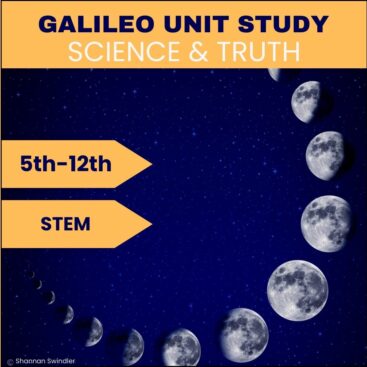
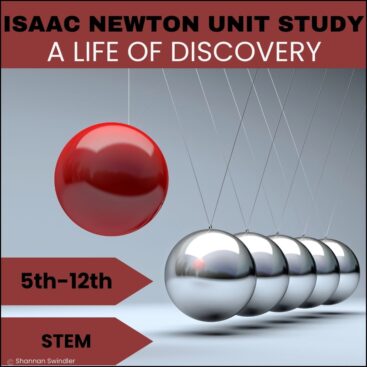
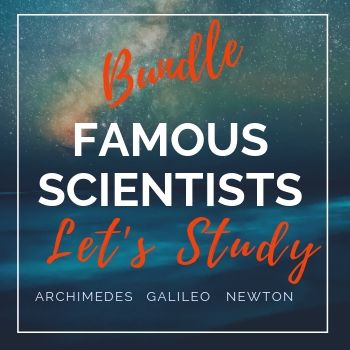
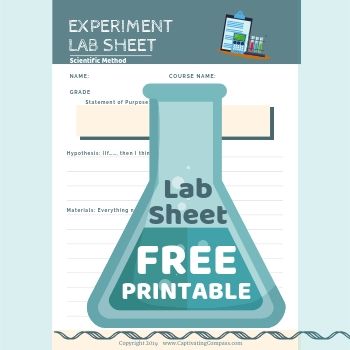


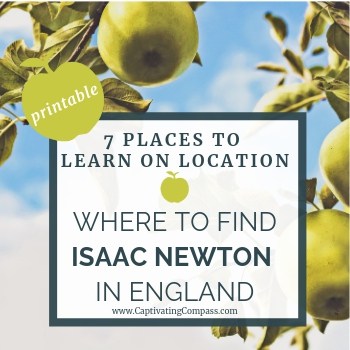
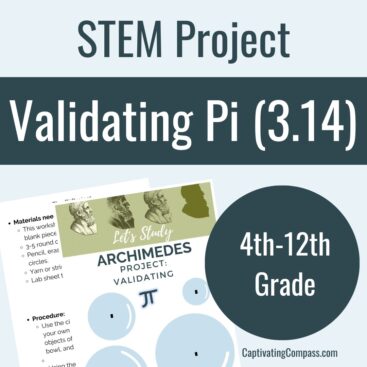
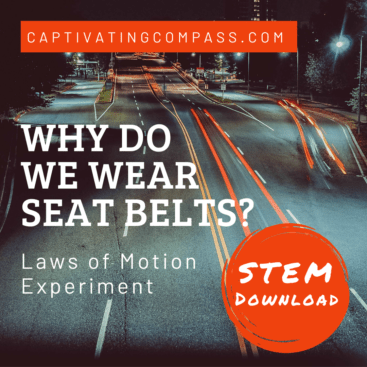

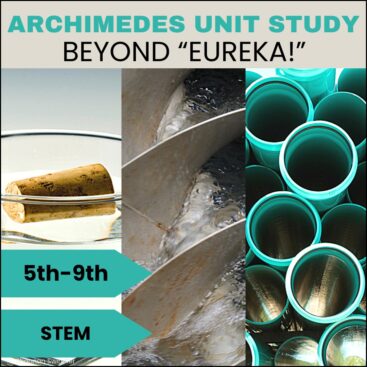
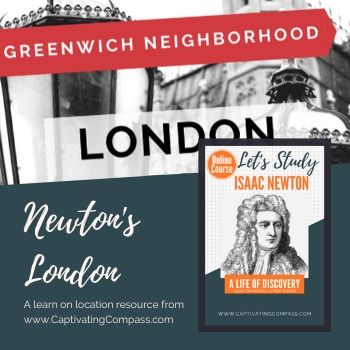


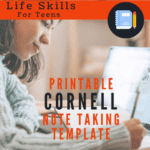


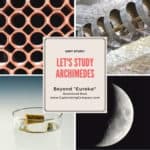
I think it is worth mentioning that part of building scientific literacy is to ask meaningful questions that eliminate biases. Everyone grows up with their own experiences and assumes they know what will happen and, if it doesn’t happen that way, then they conclude it was an anomolie, so as to not challenge their own beliefs. Starting from the youngest scientists, we should learn to ask questions that are measurable and specific, assuming all outcomes are viable. Through peer review we may learn that our unexpected outcome is a new discovery and the outcome is valid.
Exactly! That’s why the milestones mentioned above are so important for every age group. Thanks for your input! You said it so well.